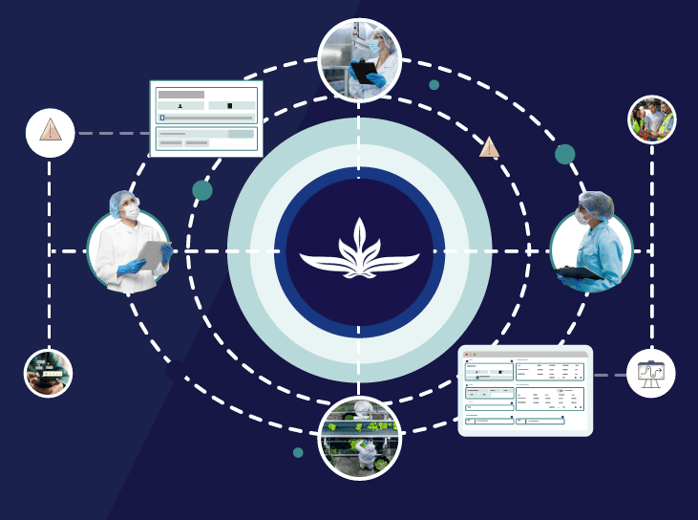Author: Ben Hartman | June 12, 2025 | 3 Min Read
Food Safety Training and How to Overcome Time Constraints

When asking food industry professionals about what makes safety training so difficult, one answer is given time and time again: we don’t have enough time.
Lack of time was the top challenge cited in a recent Rootwurks survey of almost 200 industry professionals compiled in May.
This should come as no surprise. The food industry is high-paced, high-stress, and the sheer volume of safety and compliance guidelines can frustrate even the most well-laid training plans.
To better cope with time constraints, food companies must make training more efficient by focusing on the training that is relevant for their teams. This means rejecting “one-size-fits-all” training solutions that meet a company’s unique needs.
Digital Solutions for On-the-Job Problems
Companies that want to find time to invest in creating a culture of safety should implement a Learning Management Solution (LMS) to expedite training.
An LMS that allows for the creation of custom training pathways allows companies to hone in specifically on the training and guidance their employees need and bypass the learning that isn’t relevant for their daily operations.
With custom learning paths, companies focus on the subjects employees need and create learning that team members are more likely to retain because it is more practical and relevant to their work. This training is also reinforced at work by the employee, helping ensure that it doesn’t just go in one ear and out the other.
Better Efficiency Through Visibility
An LMS also gives companies an enhanced vision of daily operations at every level of the company. And by keeping digital records of training, these platforms allow supervisors to know which employees performed which training, when it was performed, and which employees may need a refresher on a specific subject.
This allows management to create training that pinpoints specific subjects and the employees who need to revisit them. Employees who have already mastered these subjects are thus freed up to focus their training elsewhere.
Platforms that keep comprehensive digital records of training and compliance also help companies stop wasting time on tasks that don’t need repeating.
It also means that records can be accessed in an instant, without needing to file through cabinets looking for specific paper documents. This can be critical during a compliance audit.
Stay Agile and Save Time
Food manufacturing can be very dynamic, and things don’t stay static for long.
When a company launches new product lines, ingredients, and formulations, there can be a real training lag as management organizes new training to meet new guidelines. And when you toss in frequent regulatory updates, it can be especially difficult to stay on top of everything.
A customizable LMS can develop training programs that update in real time to address these changes to product lines and compliance obligations. This allows companies to quickly pivot to training and ensure their team members have the knowledge and guidance they need.
Towards a Stronger Safety Culture
To implement a strong food safety culture, “doing things the way we always have” likely won't get the job done.
By launching a concerted commitment to food safety culture and deploying sophisticated learning management tools, companies can find the time to implement the training that will build the culture they need.
Download the Free Rootwurks Guide
Download the free Rootwurks guide "How to Build a Food Safety Culture with a Modern LMS" and learn how implementing a sophisticated Learning Management System (LMS) can elevate your company's food safety culture.

Contributors

Ben Hartman
From HACCP certification to the basics of hygiene, our on-demand courseware has you covered.










